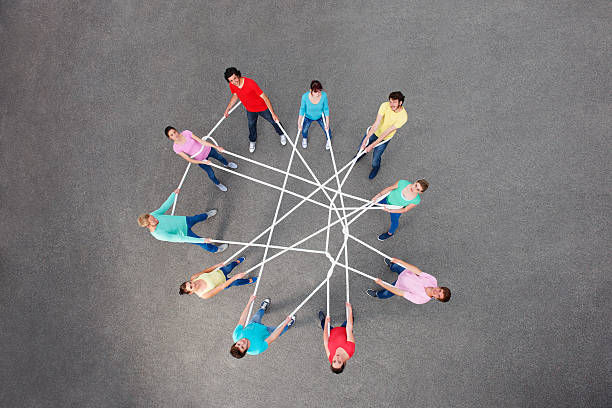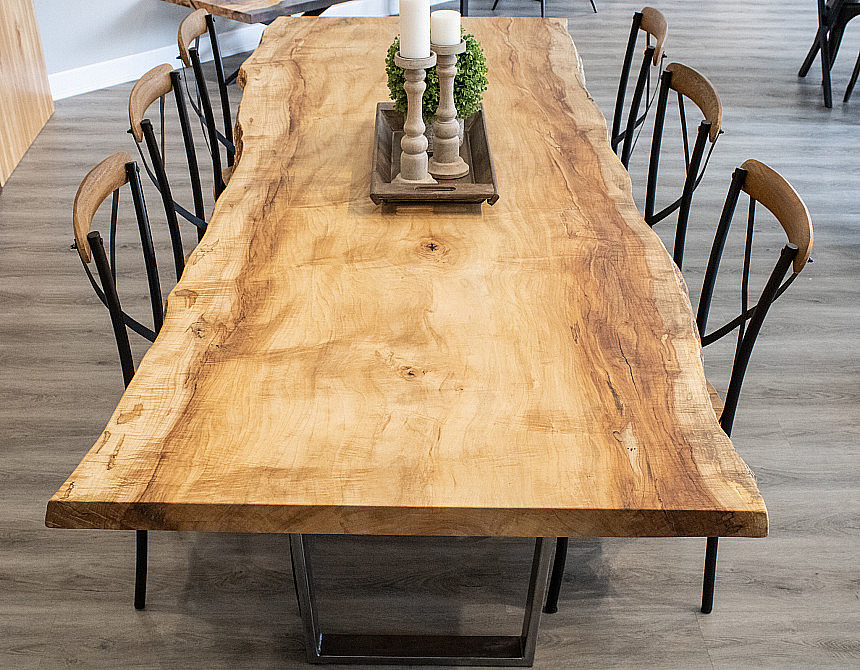Why our thinking that our family members need to change stops us from creating more ease
- Mary Kate Murray
- Jul 11, 2023
- 4 min read
Updated: Jul 17, 2023
Imagine your family is this mobile. What happens when you move one object on the mobile? All parts move. This is how a family system works, and when one person in a system (especially the leader) makes a change, everyone moves – whether they realize it or not. We humans seek balance, also known as homeostasis. And that's what family systems do, they seek balance.

Now, that doesn't mean that as individuals we are balanced within the system. You'll probably resonate to the ways that family members can get polarized. Maybe one parent feels that they have to over-function because no one else in the family will carry the mental load or do the emotional labor. Maybe one family member is experienced as very negative, so another has to be more positive to balance them out. Maybe one child in the family is experienced as the most challenging while another balances them out by keeping the peace.
For the first seven years of life, there is not a lot of critical thinking on line. Our autonomic nervous systems and our cognitive system are forming our neural networks and schemas of how we and others in the world work. We are essentially downloading information and our neural networks are wiring. And as far as neural networks go, "what fires together, wires together." Meaning, that our experiences over time in our early life wire our brains for how to deal with stress and anxiety. So, when we have regular experiences of how our family of origin handles stress and anxiety, we adapt and develop according to, or in relation to, those "family rules." Humans are amazingly adaptive and resilient!
We function, feel, think, and behave in an emotional system that started generations before us. The family system in our family of origin was created when our parents or caregivers got together and established the “family rules of engagement.” These rules may be explicit, "We never give up in this family!" But many are implicit, created in relationship without ever discussing it. These "rules" initially developed when our parents or caregivers first got together and navigated anxiety and conflict in their relationship. We then came a long and adapted and developed within that family leadership. Then as we get older, we then seek out others whose family rules are compatible or complementary with ours. This can be wonderful and it can also provide opportunities for growth.
Our human inclination is to focus on the “problem” people in our families, or to focus on the problem relationships. For instance, “Oh, my husband and daughter fight a lot. If he would just stop fighting with her, then things would get better.” “My wife is so negative all the time!” “My brother is the black sheep of the family.” “My kids never do what I ask them!”
But, rather than this external focus, we get so much more bang for our buck when we take a look at how we are participating in the system. Not with blame, shame, or criticism, but with grace and compassion for ourselves. Famous family therapist Virginia Satir talked about how she would "focus on the rope" in the family relationships, looking at patterns and needs more and the content of conflicts less. When we look at the big picture rather than getting lost in the details, we “focus on the rope” and we see that it’s all connected. I can look at this picture and understand that if I pull the rope, or move, or collapse, etc. then everyone holding the rope is going to move in some way as well. It's laws of physics. Families are no different.

This is why, if I want to create more ease in my family, the best thing I can do is to commit to learning about how I hold the rope, or what role I play in my family. Therapists might call this self-differentiation, and it's a hugely important part of creating more ease and health in a family. And the great news is that it doesn't depend on anyone else initiating change for me to do it. Me changing how I hold the rope is an invitation to change in others, rather than a demand for change, which never works.
You are the most important intervention you can make on any system. I find that so empowering, and of course frustrating. It's appealing to think that everything would be better if they "would just..." And yeah, of course it would be better if they would just. But I can't control that. However, I can influence change in others by working on my own. The more I get clear about my role and my reactions and responses, the more I invite the same in the others in my family system. It's like moving a rock in a river. The river is going to flow differently. I can't exactly predict how, but it will be healthier for me and therefore for the family.
Think this is total bunk? Let me know! I love it when people share honestly what they think about these ideas. And want to explore this topic further? Then consider joining us in the Family Ease group, under Group Offerings.




This is a great writeup. We did this exercise at my former company, the great RWD, and it showed how everyone has a role and needs to perform it effectively to get the task complete. Same with family - we are all different but we are family.